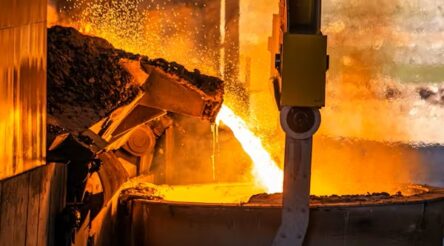Cloud shapes the future of manufacturing – by David Leen

Cloud migration is shaping the future of Australian manufacturing through greater efficiencies. But companies should plan before they leap says David Leen.
Australian manufacturing has arrived at a fork in the road. At a time where the industry is struggling amid international competition, with China and America leading the way, the question of how Australian businesses can continue to grow is ever-present . This is especially relevant given comments by Prime Minister Anthony Albanese at the 2024 Bush Summit in August, which signalled an intent to revive our manufacturing capabilities.
These pressures – along with increasingly proliferating digital systems – are prompting leaders to rethink their storage and network strategies. As a result, cloud is moving up the product value chain, as organisations are looking to drive efficiencies and bolster business resilience. Manufacturers are increasingly relying on digital solutions to innovate and grow, which includes the flexibility offered by cloud.
This is according to research from research and advisory firm ADAPT, speaking with decision makers in the manufacturing industry about why they are adopting cloud technology, and challenges that come with it.
Planning ahead
Heavy industry sectors such as manufacturing involve operations where safety and security are paramount. A cautious approach to cloud migration is necessary to ensure that critical systems controlling heavy machinery, power grids and transportation networks are secure from cyber threats and operational failures.
The consequences of a security breach or system failure in these industries can be severe, potentially leading to safety hazards, environmental damage and significant financial losses. Therefore, any migration to the cloud must be meticulously planned and executed with robust security measures in place.
Driving efficiencies
Every minute of downtime translates to lost revenue in an asset-driven industry. Cloud-enabled solutions such as AI, IoT, and big data analytics offer significant benefits, including predictive maintenance, operational efficiency and better decision making. This is important given according to ADAPT one third (33 per cent) of heavy industry manufacturers reported a lack of clear forecasting and reporting. For example, AI-fuelled predictive maintenance enables manufacturers to identify and manage the root cause of an issue early, before it affects productivity.
Embracing the cloud often means leaving behind familiar, long-standing legacy systems that have previously served manufacturers well. However, holding onto these systems is now setting manufacturers back, as one third reported inadequate knowledge about the sunken costs of legacy IT, according to ADAPT’s research.
IPD Group, an Australian-based electrical product distributor, is a good example of an organisation that consolidated technology platforms to overcome ageing hardware. The total cost of maintaining legacy systems was becoming too high, and the technology too complex. Since migrating to the cloud and eliminating the time-consuming maintenance of legacy hardware, IPD’s IT team has regained 20 hours per week per person, resulting in a substantial increase in productivity and more time dedicated to driving business growth.
This demonstrates that sinking money into maintenance isn’t the only cost of keeping legacy systems. Shifting to the cloud will enable your IT team to redeploy their time into more strategic business initiatives to ultimately improve your bottom line.
Staying close to edge operations
Manufacturers moving to cloud environments can also bring cloud management capabilities to the edge in support of keeping resources close to critical operations. By doing so, they ensure that data processing and task execution related to heavy machinery are handled with minimal latency while being managed in a consistent manner. This is crucial for maintaining operational efficiency and safety.
It’s clear that cloud technologies offer significant opportunities for Australia’s manufacturing industry to transform operations and have a dependable system to monitor and control essential processes. Now is the time to lay the foundation – with cloud at the core – to position Australia’s manufacturing industry as efficient and future-proofed.
David Leen has over 20 years’ experience in the IT industry working in both public and private sector organisations on roles including business development, solution delivery, product management and business leadership As Head of Product – Cloud & Managed Services Interactive, David applies his knowledge and experience in Cloud Technologies, Digital Transformation and Workplace Productivity.
Picture: David Leen
@aumanufacturing Sections
Analysis and Commentary Awards casino reviews Defence Gambling Manufacturing News Online Casino Podcast Technology Videos





